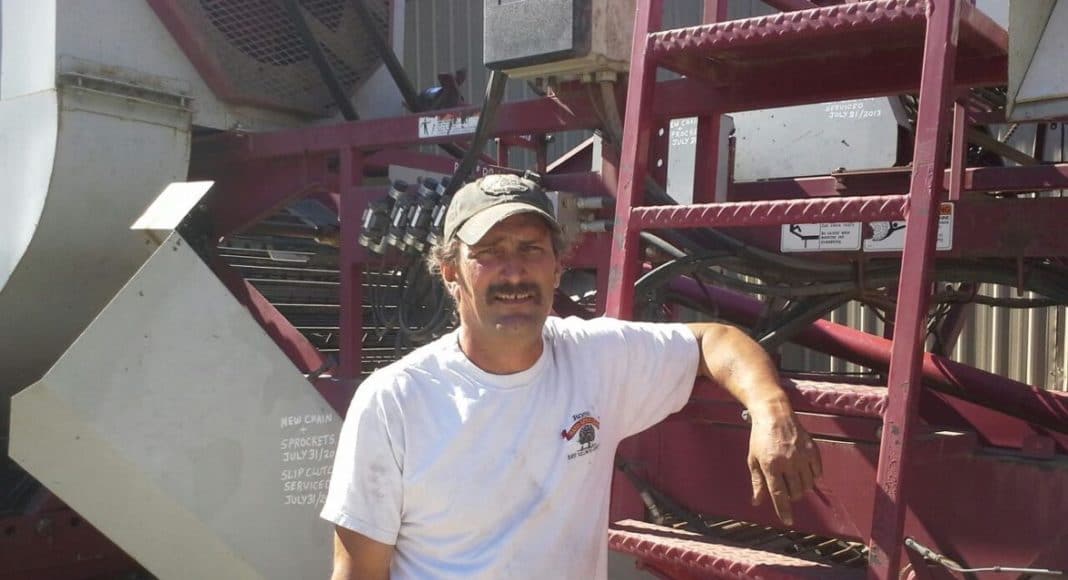Growing and selling fresh, local potatoes is the name of the game for Blair and Irene Lodder, who farm about 125 acres of potatoes in Grand Forks, B.C. “Today I dug potatoes and tomorrow the store will receive them,” Blair says.
Lodder Potato Farms, which was started by Blair’s father, Tony, in 1956, trucks out potatoes daily to different grocery stores in the area, from Safeway and Loblaws to Quality Greens Farm Market and Buy-Low Foods — all within about a 250-kilometre radius.
Blair knows that when growing potatoes for the fresh market, producers must be willing to customize their product. “We get paid by the unit,” he says. “Depending on the store, that might be a five-pound bag, a 10-pound bag or a 50-pound bulk bin. We are set up so we have the flexibility to adjust to customer’s needs.”
This year, the Lodders planted about 10 acres of red potatoes, 15 acres of yellow potatoes, 12 acres of nugget and standard white potatoes, and about 90 acres of russet potatoes.
Throughout the year, Lodder Potato Farms employs four people full-time, in addition to Blair and Irene. During the summer months, six students are brought on board, as well as a four-person crew for harvest. Blair says they try to keep all employees working an eight-hour day, five days a week. “We want people to enjoy working for us,” he says.
The Lodders don’t just work to keep employees happy; they want to keep their customers happy, too. “I love the challenge of growing a good potato crop for the fresh market,” Blair says. “It’s really a science to produce good potatoes with very little culling to keep customers happy and content with buying our product.”
If you were to just meet Blair, he’ll likely come across as easy-going and carefree, but he understands the business of farming and is strategic in his decision-making. He says their goal is have a zero-claim credibility when it comes to quality concerns from customers. “Some years we make it and some years we don’t, but it doesn’t pay to have a claim,” Blair explains
Even with a great team and the benefits of flexible packaging and direct retailer access going for them, the Lodders know there are other factors at work that can make or break a growing season. With all the risks and unknowns of farming, such as the weather, disease, and demand and supply, they know they can’t put all their eggs in one basket.
Blair recalls a fateful day on July 13, 2007, when the farm’s crops were wiped out by a storm with 160 kilometre-per-hour winds and heavy rain. “It was extremely challenging to decide if we were going to till everything under or try and salvage what we could,” he says. “We tried to salvage it and work with what we had, but we lost a lot.”
From that experience, the Lodders have changed the way they do things. “We’re planting different products at different times of the year,” Blair says. “And we have a better understanding of what can happen and what to expect.”
As part of their five-year plan, the Lodders are looking to diversify their farm. In addition to growing potatoes, they also grow pickling onions, shallots and rye for cover crops.











